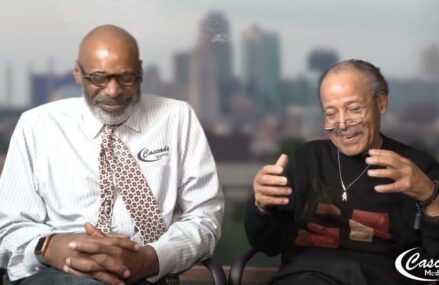By DAVID GUTMAN
This image provided by West Virginia Legislative Services shows Del. John Overington, R-Berkley, In Charleston, W. Va. The 2013 legislative session marks the 27th consecutive year that Overington has introduced a bill to reinstate capital punishment in West Virginia. (AP Photo/West Virginia Legislative Services)
CHARLESTON, W.Va. (AP) — With neighboring Maryland about to become the sixth state in as many years to abolish the death penalty, one West Virginia delegate is on a quixotic quest to resume executions in his state for the first time in a half-century.
This year marks the 27th in a row that Republican Del. John Overington has introduced a bill to reinstate capital punishment. It has rarely progressed far and is unlikely to pass this year, even with the minority GOP steadily making gains in the legislature. Still, Overington said he will continue pushing such bills because he thinks the state would be better served if it could execute convicted murderers.
“You want to live in a just society that is fair, and capital punishment, if somebody is murdered, I think there’s a perception that you have fairness if that person is put to death,” Overington said. “It sort of adds to the fairness of our society and helps make it work. If you feel that our justice system is fair, it helps you believe in it.”
Since 2007, New Jersey, New York, New Mexico, Illinois and Connecticut have abolished the death penalty. In Maryland, the legislature has passed a bill repealing the death penalty, and the governor has promised to sign it. There are official moratoriums on the death penalty in California and Oregon, and there are legislative efforts to repeal the death penalty in at least 14 other states.
West Virginia abolished the death penalty in 1965 and has not executed a prisoner since 1959.
Overington isn’t worried about bucking that trend because he says the public supports capital punishment. He proudly points to faded newspaper clippings in his office with poll results showing majorities of West Virginians favoring capital punishment. And every year, Overington sends everyone in his district a “citizens’ poll” soliciting their opinions on current issues — he said capital punishment always gets overwhelming support.
He said his interest in bringing back the death penalty goes back to the case of Ron Williams, who killed a police officer in Beckley in 1975. Four years later, he orchestrated a mass escape from the prison in Moundsville and killed an off-duty police officer. He killed another person in Arizona in 1981 before being caught in a gunfight with federal agents in 1984.
“So if we had had capital punishment for that first killing in cold blood in Beckley, we’d have another policeman that would be alive today,” Overington said.
Other than Maryland, all of West Virginia’s neighbors still have the death penalty — and Overington said he fears that West Virginia invites killers by not having capital punishment as a deterrent. However, West Virginia’s homicide rate for the past 10 years is lower than that of all neighboring states, according to FBI data.
There have been many studies both touting and discounting the death penalty’s role as a deterrent. In 2012, a National Research Council report concluded that none of those studies — either for or against capital punishment — was statistically sound enough to be useful.
“That was a pretty definitive review of these studies,” said Richard Dieter, executive director of the Death Penalty Information Center, an anti-death penalty advocacy group. “Ultimately it may be impossible to know if deterrence occurs, but we haven’t proven it.”
Overington, with 29 years in the House, is the longest-serving member of the chamber. And Republicans have made steady gains in the House, now just five seats shy of a majority. Nonetheless, his measure stands little chance of passing.
Republican Del. Ron Walters said his party would be misguided to risk their electoral gains by pushing controversial social issues like the death penalty. And the bill has been assigned to the Senate Judiciary Committee, where Chairman Tim Miley said it is unlikely to proceed.
The bill has one Democratic co-sponsor, Del. Rupert Philips, who said that people he’s talked to while campaigning seem to support it.
“When’s enough enough? We’re wasting tax dollars trying to prosecute them,” Philips said. “An eye for an eye.”
However, most studies show that death penalty prosecutions are far more expensive than sentencing someone to life in prison. That’s because states often spend years fighting inmates’ appeals, sometimes all the way to the U.S. Supreme Court.
Miley also said many people are hesitant to reinstate the death penalty to avoid executing someone who was falsely convicted, citing the example of a West Virginia state police crime lab technician who was found to have falsified evidence in at least 134 cases that led to convictions.
Since 2009, 14 prisoners nationally who spent time on death row have been exonerated, many of them as a result of DNA testing. The first man ever exonerated from death row by DNA evidence, Kirk Bloodsworth, has become both a rallying call and a key lobbyist in the effort to repeal Maryland’s death penalty.
Still, Overington said he’s determined to make attempt No. 28 next year if his bill fails yet again.
“Some bills I’ve pushed I get passed the first year and some the second or third year and some take a little longer,” Overington said. “But it is my intention to try again next year.”



